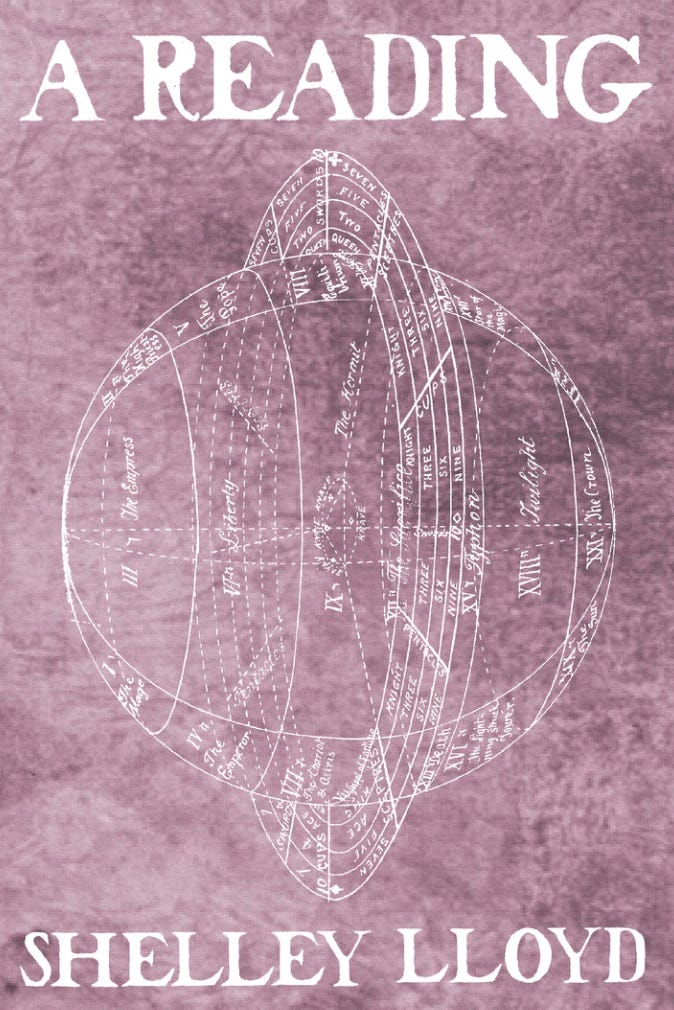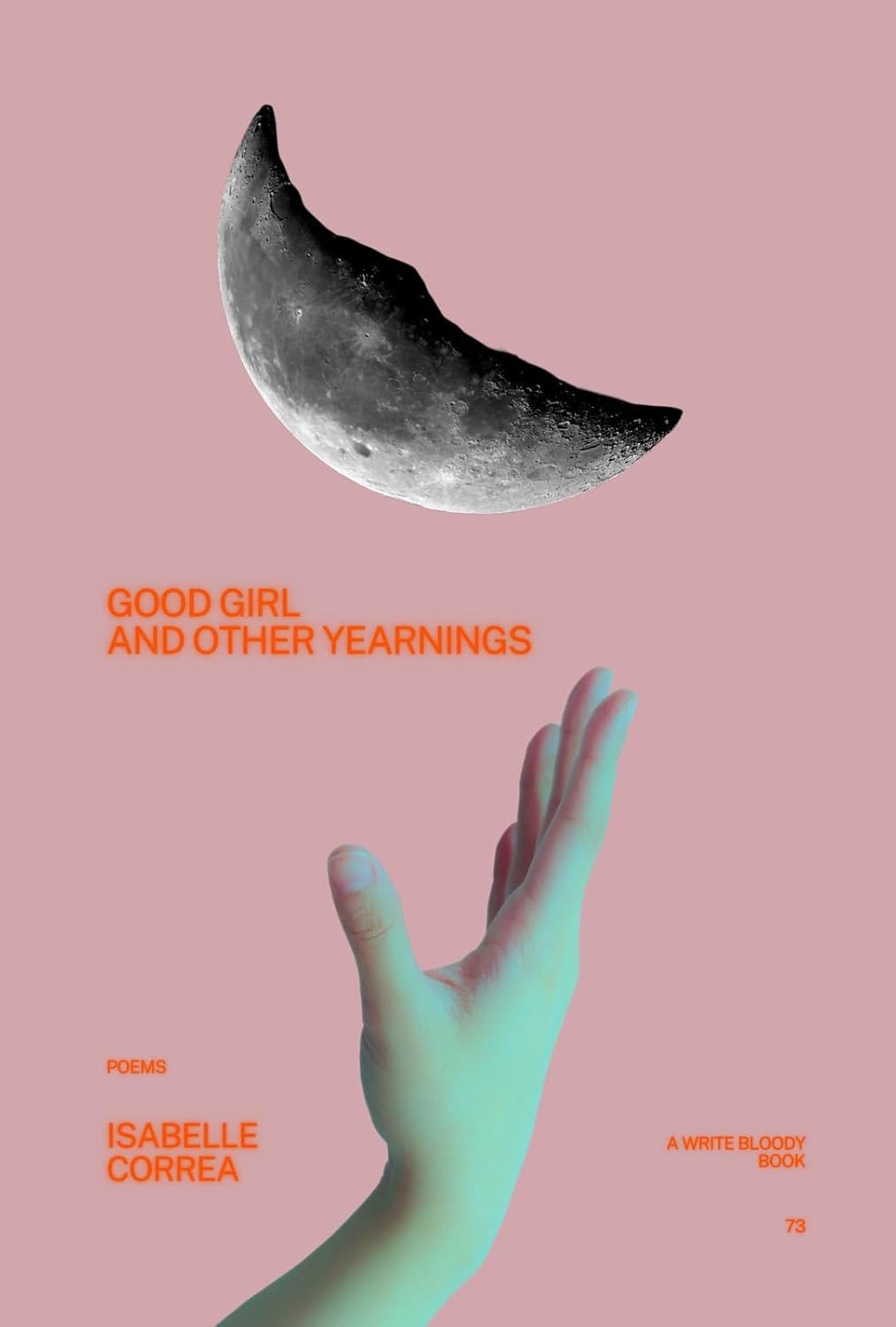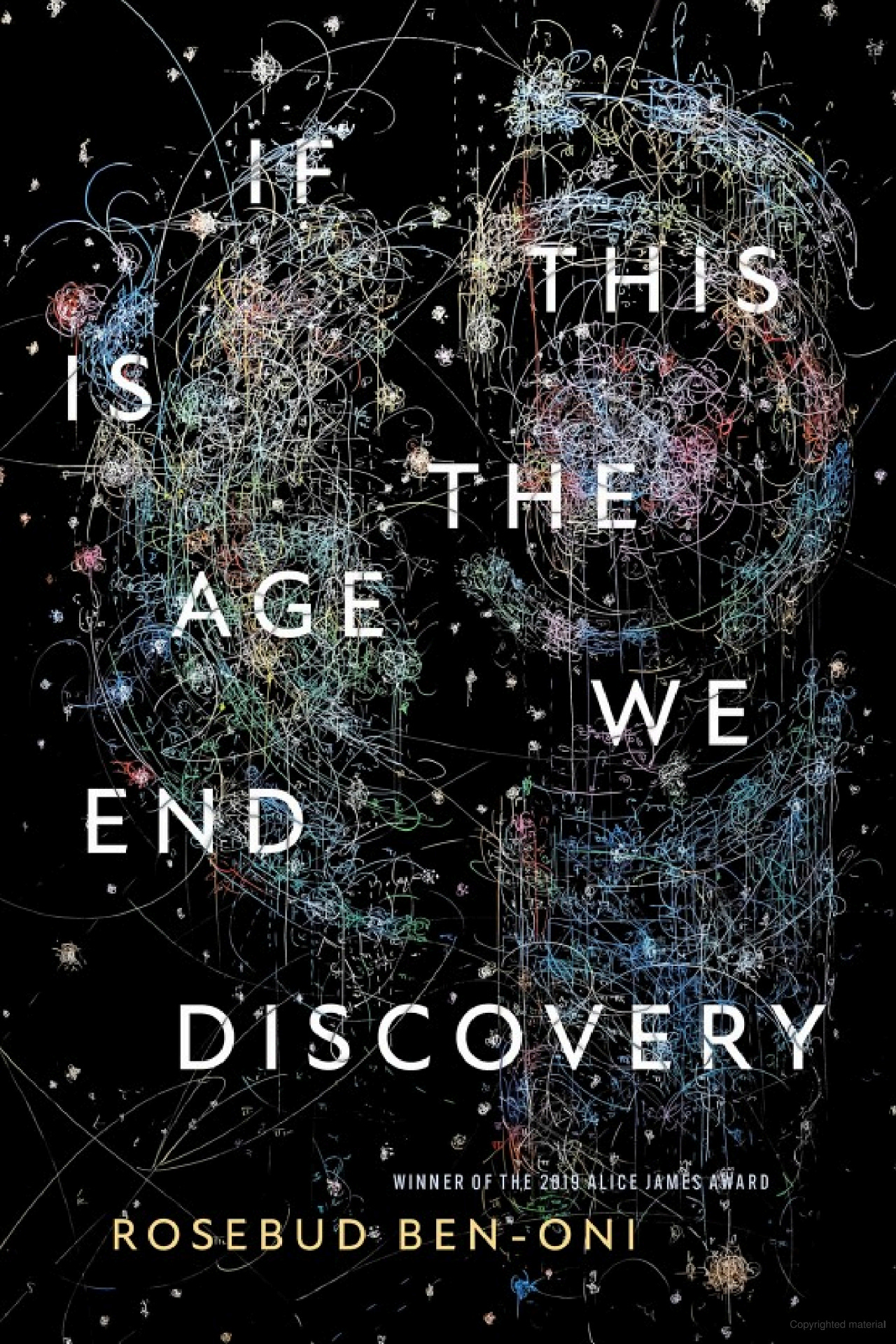This is an evolving list of poetry books that claim a seat at the table, the kind that make you pause between sips, underline a line, or stare out the window just a little longer. Poetry books come in many forms: micro-booklets (~5–15 pages), chapbooks (~18–45 pages), and full-length collections (48+ pages)—all bitesize compared to most books—small but potent, and the perfect literary companion to your morning ritual.
2025
AUGUST’S PICK
A Reading, by Shelley Lloyd
Published Bottlecap Press (August, 2025)
Shelley Lloyd’s A Reading is a deft example of the hybrid prose-poem/creative-nonfiction chapbook: compressed at the sentence level, capacious in scope. Across thirty-two pages, the book braids scenes, with a touch of aphorism, into a voice-driven meditation on time, displacement, disability, and the strange glitching elasticity of ordinary life.
Lloyd takes us by the belt loops and shows us what it’s like to be them for a while. The effect is hospitable and instructive: sometimes the prose slips into mini-tutorials, teaching us their hobbies and rhythms, the small rituals that keep a life stitched together when larger structures wobble. That pedagogical undertone doubles as ethos; we trust the speaker because they show their working out of situaitions—how attention is paid, how meaning is made, how a body moves through rooms, concerts, and calendars.
If hybrid work sometimes risks feeling formless, A Reading claps back with shape: a chapbook length that invites one-sitting immersion, with a cadence that rewards re-reading.
Lloyd’s scholarly background is evident; the sentences know what they’re doing; the arguments arrive sideways, through image and arrangement. The result is this resilient poetics of coping: writing and neurodivergence are framed as methods of survival and resistance, while remaining flexible enough to bear the weight of unstable days ahead.
🔗 Purchase from Bottlecap Press
Buying direct supports the author and helps keep small press poetry thriving.
JULY’S PICK
Where the Beetle Went for Lunch, by Sonja Ringo
Published (June 8, 2021)
Reading this collection felt like finding kinship in the wild—like stumbling upon someone who not only notices the small, sacred things, but holds them with reverence. Sonja Ringo’s Where the Beetle Went for Lunch soothed something deep in me. There’s a gentleness to her language, but a fierce, rooted love underneath.
Two poems that especially stayed with me were: “Howler Monkey” and “Earth Song”
The book is divided into five elemental sections: Earth, Air, Fire, Water, and Spirit, and within each, the poems observe nature yes, but they also listen to it. There’s a quiet reverence throughout, a sense that every beetle, breeze, and birdsong is part of a shared and bigger conversation.
Pairs well with: A warm cup of rooibos or chamomile. At 128 pages, Where the Beetle Went for Lunch is a grounding, elemental read—perfect for evenings when you're craving something quiet, wise, and close to the body.
Purchase Link:
🔗 Purchase from Sonja Ringo’s Website Free Shipping.
Buying direct supports the author and helps keep small press poetry thriving.
JUNE’S PICK
The Carrying by Ada Limón
Published by Milkweed Editions (4/13/21)
In The Carrying, Limón writes of illness, dementia, dislocation, fertility challenges and longing with startling clarity; all the while honoring nature, animals and family. Limón’s artistry lies in her lyricism, the ability to frame the private as communal, and her searing metaphors—a poetic sleight of hand that feels like truth blooming in slow motion.
This collection is a meditation on the tension between belonging and being unmoored. Limón also shows us how we are part of nature, and yet so often cruelly apart from it. We are all trees, she suggests, shifting slightly in variation from state to state. Her poems remind us what it means to carry things we didn’t ask for, and still find the grace to grow. One line in particular stays with me: “Imagine you must survive without running,” she’s referring to trees, in the poem Ancestors.
They say to write the book only you could have written, and I believe that’s generally good advice. But reading Ada Limón’s The Carrying makes me want to leave space for a caveat. Because this book feels like it could have been written by me, too—not in voice or virtuosity—but in how it echoes my lived experience. It stirred me to tears more than once. I felt a camaraderie with the poet and her work, and I will now forever hold this book in a special place.
Purchase Link:
https://milkweed.org/book/the-carrying
MAY’S PICK
Good Girl and Other Yearnings – Isabelle Correa
Published by Write Bloody Publishing (April 18, 2025)
“To travel back in time and tell their younger selves the real difference between lust and love is that love is a seed and lust is a bird ravenous for seeds.” —Girls Only Want One Thing.
This debut is a poetic excavation of identity, trauma, and tenderness, where the body becomes archive of both inquiry and answer. These poems span girlhood, grief, memory, desire, and reclamation, blending the surreal and the confessional with a voice that’s both vulnerable and razor-sharp. Correa bends narrative, myth, and the language of healing into something wholly her own.
“I know a tree is a wound
of the earth. I know a wound is an act
of remembrance.”“A poem is a place / I go. It's safe / like an ambulance / is safe. / You being / inside / means / you're already hurt."
This is poetry that knows how to carry pain without glorifying it, and how to name hope without erasing struggle that came before. Correa writes like someone who’s survived and speaks with ownership.
Pairs well with: A lavender oat milk latte—comforting, floral, and quietly subversive. At just over 100 pages, Good Girl and Other Yearnings is a weighty yet luminous read.
Purchase Link:
You can purchase Good Girl and Other Yearnings from Amazon:
🔗 Good Girl and Other Yearnings by Isabelle Correa
Or directly from the publisher at Write Bloody:
🔗 Write Bloody Publishing
Buying directly supports independent poetry presses and helps ensure more books like this reach the world.
APRIL’S PICK
Fruitful – Stefanie Kirby
Winner of the 2023 Adrift Chapbook Contest
Stefanie Kirby's Fruitful is a poignant exploration of motherhood, pregnancy, and loss. This chapbook delves into the complexities of raising children during a pregnancy and the subsequent experience of miscarriage. Kirby's poems are known for their surreal and artful compactness, capturing profound emotions with striking imagery.
At 52 pages, Fruitful offers a deeply immersive reading experience that resonates long after the final poem. It's an ideal companion for a slow morning, inviting readers to navigate the delicate intersections of joy and sorrow.
☕ Pairs well with: A gentle chamomile tea, offering warmth and solace to complement the chapbook's introspective journey.
Purchase Link:
You can purchase Fruitful directly from Driftwood Press: 🔗 Fruitful by Stefanie Kirby
MARCH’S PICK
If This Is the Age We End Discovery – Rosebud Ben-Oni
Winner of the 2019 Alice James Award
Rosebud Ben-Oni's If This Is the Age We End Discovery masterfully intertwines intimate human conditions with the grand cosmos, offering a poetic exploration where science meets personal narrative. This collection navigates the boundaries of theoretical physics and Jewish mysticism. Ben-Oni introduces the concept of "Efes," a term rooted in Modern Hebrew meaning "zero," but also signifying "nullification" and "concealment" in mystical texts. This notion becomes a transformative force throughout the collection, prompting contemplation on existence and the unknown.
The poems are precisely crafted, moving through multiverses of family, religion, and discovery, much like a surgeon sewing a complicated stitch. At 100 pages, If This Is the Age We End Discovery is a substantial read that invites deep reflection. It's an ideal companion for a contemplative morning, offering a fusion of scientific curiosity and poetic insight.
Purchase Link:
You can purchase If This Is the Age We End Discovery directly from Bookshop.org
🔗 If This Is the Age We End Discovery by Rosebud Ben-Oni
FEBRUARY’S PICK
You Should Feel Bad – Laura Cresté
Winner of the 2019 Poetry Society of America Chapbook Fellowship
Some poems arrive like a whisper; others hit like a gut punch. Laura Cresté’s You Should Feel Bad does both, threading the delicate with the devastating, the personal with the universal. This chapbook plays in emotion like a toddler left alone with a bucket of paint—it spreads it out, presses into it, lingers in feeling until something startling surfaces.
Stephanie Burt describes Cresté’s poetry as the kind that makes you pause—on first read, you might wonder, “What just happened?” and on the second, “Oh. Yes.” That’s the magic here: an emotional terrain that shifts upon return, poems that hold nostalgia, fear, reassurance—sometimes all at once.
“I thought I wanted to be in love but really / I wanted something to do with my hands.”
This is the kind of line that stops you mid-sip. It captures the longing for longing itself. It’s in this precise, deliberate way that Cresté dissects intimacy, expectation, and self-perception—not with grand gestures, but with the quiet precision of a scalpel.
At just 16 poems, You Should Feel Bad is a brief but potent read—one that will make you want to return, reread, and reconsider. It’s the perfect companion for a slow morning, when you want something that lingers long after the last sip. Pairs well with: A strong pour-over, no sugar. The kind that sharpens the edges just enough.
Purchase Link:
You can purchase You Should Feel Bad directly from the Poetry Society of America’s website, and know you’re supporting both the poet and the organization that champions works like these. 🔗 You Should Feel Bad by Laura Cresté
JANUARY’S PICK
Girl at the End of the World – Erin Carlyle
Published by Driftwood Press
This poetry book is a haunting exploration of loss, identity, and place, unearthing the raw edges of personal and generational trauma while weaving in moments of quiet magic. At its core, Carlyle’s collection chronicles the aftermath of her father’s death, yet it resists the ordinary confines of grief poetry. Instead, these poems bend reality, embracing the surreal and the mythical—ghosts slip between lines and sorrow transforms into something luminous.
In "Opioid Crisis," Carlyle reflects on her father’s struggles, painting images that feel both deeply personal and universally resonant. Her poetry reshapes loss, reimagines it, and leaves space for the supernatural to blur with the everyday.
At 96 pages, Girl at the End of the World is a more of a slow burn—one that invites contemplation, rereading, and a slow absorption of its beauty and ache. It’s a book for those who like their poetry with a touch of the otherworldly, where grief and magic coexist in quiet, unsettling ways.
Pairs well with: A rich, dark roast coffee—something bold to match the depth and lingering mysticism of Carlyle’s poetry.
Purchase Link:
You can purchase Girl at the End of the World directly from Driftwood Press: Girl at the End of the World by Erin Carlyle
POEtic Threads!
For those of us who live in words, edit with caffeine, and revise until our eyelids stick to our scleras. POEtic Threads focuses on comfortable, wearable pieces, that nod to the writing life: for when you’re deep in the draft trenches, heading to a reading/book club, or just want to be cozy.















I love this concept, Nancy! Thank you for compiling this.
I simply adore you <3